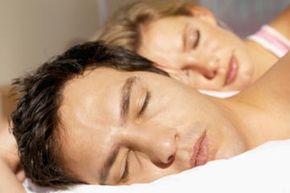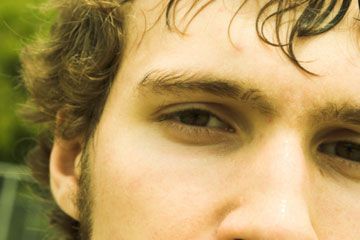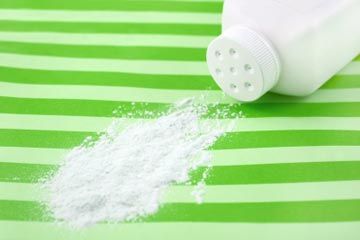Sweat is the body's natural cooling mechanism, and it usually kicks in when it's hot outside or when you're exercising. However, there's a time and a place for it, and while most people expect to work up a sweat at the gym, perspiring while sleeping can be uncomfortable and somewhat alarming.
Evaporation is the key cooling element in sweat, which is mostly water and salt. When the warmer water evaporates, a thin layer of cooler water is left on the skin. Most people have 2 to 4 million sweat glands in their bodies, and most of them are located in the armpits, face, palms of the hands and soles of the feet. Because everyone is different, the more sweat glands you have, the more you'll sweat. Men tend to sweat more than women because women's bodies are better at regulating water [source: Phan, Sternberg].
Advertisement
There are two different types of sweat glands in the body: apocrine glands, which are triggered by emotions (think sweaty palms on a first date) and eccrine glands, which are designed to cool the skin. When it comes to night sweating, eccrine glands are the main contributors, although apocrine glands do their part as well.
The body has an internal thermostat known as the hypothalamus, which sets a desired body temperature and activates sweat glands when it gets too high. Hot weather isn't the only type of stimulus that can give the hypothalamus a high reading, though. Internal problems, like bacterial or viral infections, can provoke the portion of the brain to raise body temperature, creating a fever. Certain types of medications, menopause and serious infectious diseases can also send signals to the hypothalamus to start producing sweat.
While there can be many reasons you're sweating at night, learning to recognize the symptoms and the causes will help you understand this condition. Next, we'll talk about why people sweat in their sleep.
Advertisement



